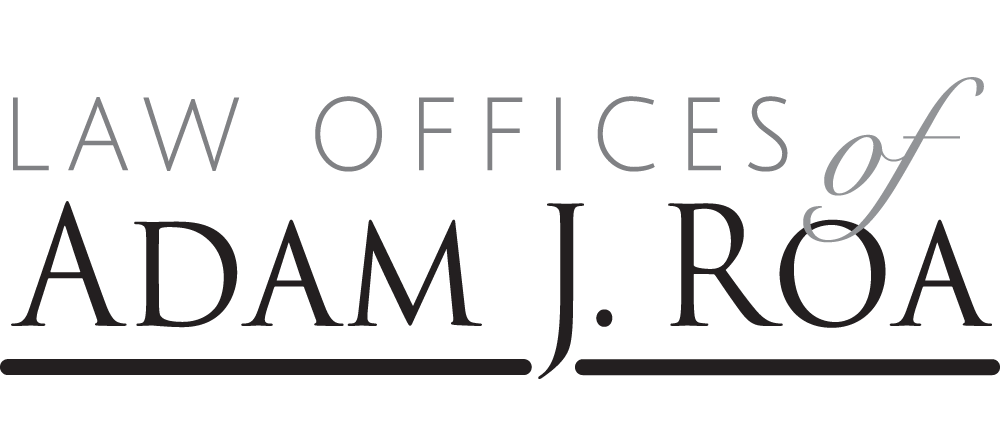
Adult Guardianship FAQ
Below are frequently asked questions we receive about adult guardianship.
- I have a health care power of attorney for my dad. Even though he does not want to go to an assisted living facility, since I am his power of attorney, can I force him to go to the assisted living facility?
- Without my knowledge, my brother had my father (who suffers from dementia) sign a new power of attorney giving my brother full powers. My father signed a power of attorney years ago giving me the right to act as his sole power of attorney. I am afraid that my brother will use this new power of attorney and steal my father’s assets. What do I do?
- My father suffers from Parkinson’s and his hand shakes violently. Can he still sign a financial power of attorney?
- My husband is in ill health. I have heard that as his wife I can make medical decisions for him. So I don’t need to be appointed as his health care agent. Is that true?
- My mother is the health care agent for my father. There is no backup. My brother and sisters do not get along. What happens if mom can’t act as my dad’s health care agent?
- My brother is my mother’s financial power of attorney. I think he is stealing from my mother. What do I do now?
- If my brother is my mother’s financial power of attorney and we seek guardianship, does that mean my brother is favored over me for the court appointed guardian of the property?
- If I file a guardianship petition for the benefit of my mother, who will serve as my mother’s advocate?
- Will the court appointed attorney be my attorney?
- Are there two types of guardianships?
- What happens if the nursing home has hired an attorney to have a guardian appointed for my parent? What do I do?
I have a health care power of attorney for my dad. Even though he does not want to go to an assisted living facility, since I am his power of attorney, can I force him to go to the assisted living facility?
No. Absent a court ruling and other more extreme circumstances, your father cannot be forced to live at an assisted living facility by you as his attorney in fact. If your father suffers from a disability and that disability is interfering with his ability to make reasonable decisions regarding his health, then it likely means that the court will have to intervene in a guardianship proceeding to move him to assisted living.
Without my knowledge, my brother had my father (who suffers from dementia) sign a new power of attorney giving my brother full powers. My father signed a power of attorney years ago giving me the right to act as his sole power of attorney. I am afraid that my brother will use this new power of attorney and steal my father’s assets. What do I do?
This is likely a scenario for court guardianship. The issue of having your father sign a new power of attorney is twofold. One, your father suffers from dementia and he may have lost the legal capacity to sign a new power of attorney. The second issue is more practical. Your father may sign your power of attorney and then may turn around, when your brother finds out your father signed a new power of attorney, and have your father sign a new power of attorney. This is what I call the “dueling powers of attorney.” In order to settle the issue, the court likely needs to get involved and appoint one person as your father’s guardian of the property.
My father suffers from Parkinson’s and his hand shakes violently. Can he still sign a financial power of attorney?
That depends. The fact that his hand shakes violently has no impact on whether or not he can execute a new power of attorney. The real issue is how far along is he with Parkinson’s disease. If there is any question regarding his legal capacity to sign a financial power of attorney, our office will have his primary care physician certify that he has the capacity to sign a new power of attorney.
My husband is in ill health. I have heard that as his wife I can make medical decisions for him. So I don’t need to be appointed as his health care agent. Is that true?
No. It is true that without an advance directive, a spouse is considered a natural surrogate and can make certain medical decisions if the ill spouse has lost the ability to give informed consent. However, there are a number of other issues including end of life decisions. If your ill spouse is in a terminal condition, persistent vegetative state, or end stage condition and has not executed an advance directive, then there will likely be some very serious issues. The concern is that if your husband has not lost the ability to give informed consent and cannot feed himself and he is in one of these conditions, and he cannot feed himself, will he be tube fed? Absent his declaration not to be tube feed, Maryland law is quite clear that it deems that it is in his “best interest” to be tube feed until he passes. A natural surrogate cannot make these end-of-life choices for him.
My mother is the health care agent for my father. There is no backup. My brother and sisters do not get along. What happens if mom can’t act as my dad’s health care agent?
That also depends. If your father has the legal capacity to appoint a backup to your mother then that is fine. If he has lost that ability, then likely you are facing a guardianship process that will be contested. This is a complex area of the law that our firm has years of experience in handling. Give our office a call.
My brother is my mother’s financial power of attorney. I think he is stealing from my mother. What do I do now?
The rules relating to powers of attorney changed dramatically as of October 2010. There may be provisions that can force your brother to divulge his activities. There are even provisions that involve court action where you can call into question his activities. If his activities are suspect, then this will likely lead into a contested guardianship proceeding.
If my brother is my mother’s financial power of attorney and we seek guardianship, does that mean my brother is favored over me for the court appointed guardian of the property?
Yes. There is a pecking order of preference for the court to follow in determining who should serve as guardian. However, you have every right to show cause why your brother should not be appointed. That is why you need a good elder law attorney that is experienced in guardianship proceedings to serve as your advocate.
If I file a guardianship petition for the benefit of my mother, who will serve as my mother’s advocate?
Once the guardianship petition is filed (with the two required certificates), an attorney will be appointed to represent your mother. This attorney is chosen at random by the Court from a list of attorneys who want to serve as court appointed counsel for an alleged disabled. This person is paid by your mother with a court order. Every jurisdiction is different in terms of how much the court appointed counsel may be paid. For example, in Baltimore County, that limit is usually around $1,200 for uncontested guardianship cases. In Montgomery County, that is up to each judge. There is no set cap for court appointed attorney fees in contested cases. However, the fee asked for must be “reasonable.”
Will the court appointed attorney be my attorney?
No. That would be a clear conflict of interest. The court appointed attorney only represents the alleged disabled’s interest. The real tricky part is if your parent suffers from, let’s say dementia, but dresses nicely, jokes a lot and otherwise masks their disability. In a number of matters, the court may assign an attorney that has no background in dealing with individuals suffering from dementia. We have had our share of cases where we need to illuminate the issues for the court appointed counsel. Just because someone dresses nicely, can engage in coherent discussion for a couple of minutes mean that they are not suffering from a disability affecting their ability to make reasonable decisions regarding either their finances or health care decisions.
Are there two types of guardianships?
Yes. There is guardian of the property and guardian of the person. Guardian of the property makes strictly financial decisions. Guardian of the person makes medical related decisions. It is very common to ask the court to have one person named as both the guardian of the person and property.
What happens if the nursing home has hired an attorney to have a guardian appointed for my parent? What do I do?
This has happened a number of times. Often the issue is that the nursing home has not been paid and either believes there are assets that could be used to pay the expenses or it needs a guardian to complete the Medical Assistance application so the nursing home may be paid by Medical Assistance. You should immediately contact our office for a consultation. I have seen nursing homes use this as a weapon in an attempt to seize assets of someone in a nursing home when there was a billing dispute.
